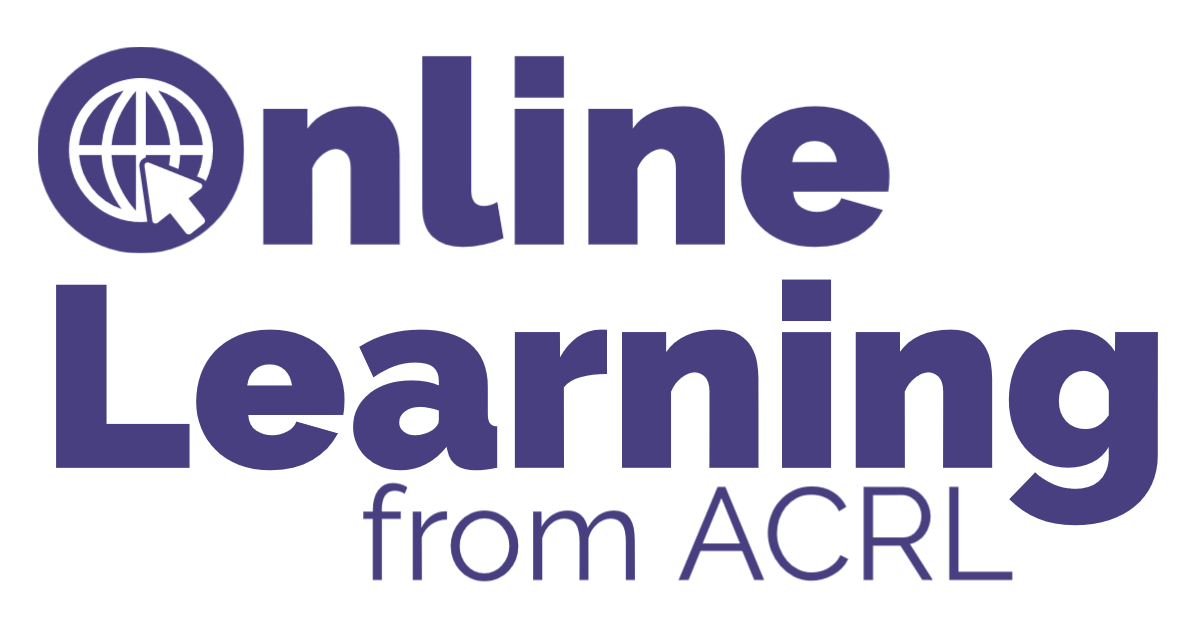Exploring AI with Critical Information Literacy

ACRL Online Course
January 12-February 6, 2026
From the time that ChatGPT arrived on the scene with much fanfare, and much consternation, it seems that not a day goes by without some new, and often alarming, aspect of AI entering the conversation. Debates and discussions veer from concerns around misinformation (and the ways in which AI might contribute to its increased spread) to potential threats posed to a variety of jobs, from disturbing reports of AI upholding and reinforcing racial biases and misogyny to fears around privacy. While it remains to be seen whether AI will save humanity or usher in a dystopian nightmare, what often gets muddled or even lost in many of the heated debates around AI is the fact that AI is very much a human issue. AI is created by humans, used by humans, reflects our human biases and blind spots and foibles, and has very real implications for human beings.
In this course, we will examine and unpack AI through the lens of critical information literacy and will explore the ways AI is rooted in and is an expression of our social, political, and cultural systems and power structures. With this critical lens, we will examine ways in which librarians can uncover, navigate, and respond to many of the challenges posed by AI. How can we as librarians leverage our expertise and contribute to conversations and efforts around things like ethical AI movements? How can librarians empower our communities to ask questions and engage with AI and technology more critically?
In the first week of this course, we will review current trends and developments in AI, paying attention to how these tools are developed and who is doing the developing. After taking a more human-centered approach to AI, we will enter week two and will explore some of the major issues, challenges, and debates surrounding AI, including various ethical, political, social, and cultural issues. In our third week, we will explore ways in which critical information literacy can be used to examine and discuss AI in our current era and how librarians can respond to AI. Finally, in week four we will come full circle and will examine some of the debates surrounding AI in education and libraries and will consider ways forward and next steps for librarians in this new landscape.
In this course, we will explore case studies and readings and engage in reflection and discussion. The activities in this course will be things that you can adapt and use in your own library and the goal is that everyone leave with new ideas, resources, strategies, and plans for next steps that you can take in your own library to engage with and respond to different forms of AI.
Learning Outcomes
- Critically evaluate major issues surrounding the development and use of AI, including ethical, social, political, and cultural issues.
- Examine AI through the lens of critical information literacy in order to gain a more nuanced understanding of the challenges posed by AI.
- Develop strategies and approaches for addressing, navigating, and responding to AI in libraries.
Target Audience
Academic librarians, from early to mid-career
Public librarians, from early to mid-career
School librarians, from early to mid-career
Instruction and outreach librarians
Presenter
Sarah Morris is a librarian, educator, and curriculum designer whose research and work focuses on critical information and media literacy, AI literacy, mis/disinformation, civic engagement, student success, and information science education. Sarah has been a librarian for eleven years and received her MS in Information Studies from the University of Texas at Austin. She held positions at Loyola University Chicago and the University of Texas and served as the Head of Instruction and Engagement at the Emory University Libraries. In addition to her work in libraries, Sarah has worked on curriculum projects for organizations that include the Mozilla Foundation, ALA, Sage Publishing, and the NSF. Sarah is currently working as a media literacy program consultant with the Carter Center and as an educational consultant.
Testimonials
- "I cannot even tell you how OUTSTANDING the level of research and reading was that went into building this course. Reading about this stuff every day, I mostly registered to get an idea of what people were teaching, rather than to learn as a beginner. I was blown away by the quality of this. Fantastic course offering!"
- "Sarah Morris was an excellent instructor. Very knowledgeable and engaging. Thank you for putting together this timely session. A bargain for an ACRL member!"
- "This was an amazing class, with so much useful information, from the general view on AI in our lives, down to ACRL guidelines."
Registration
Pricing is listed to the right on this page. To register, use the register button to checkout.| Number of Seats | Discount |
|---|---|
| 3-15 | 15% |
| 16+ | If you are registering 16 or more individuals, please contact us at ce@ala.org for special rates. |
Tech Requirements
The course will be offered in the ALA LMS; a computer with Internet connection is required. Your participation will require approximately 3-5 hours per week of primarily asynchronous activities to:
- Read the online course materials
- Post to online discussion boards or participate in optional Zoom chats
- Complete online exercises and/or final assignment
Participants who complete the course requirements will receive a certificate of completion.
Contact Margot Conahan at mconahan@ala.org with questions or requests for special assistance or accommodations.